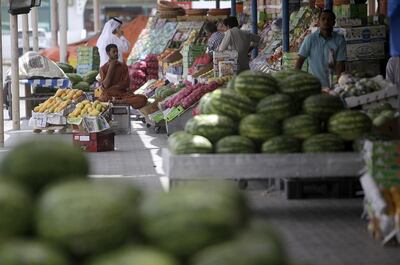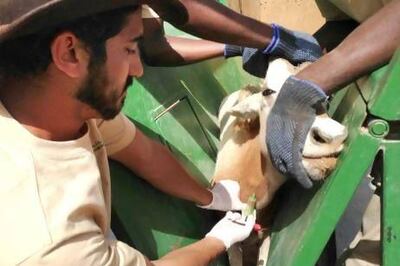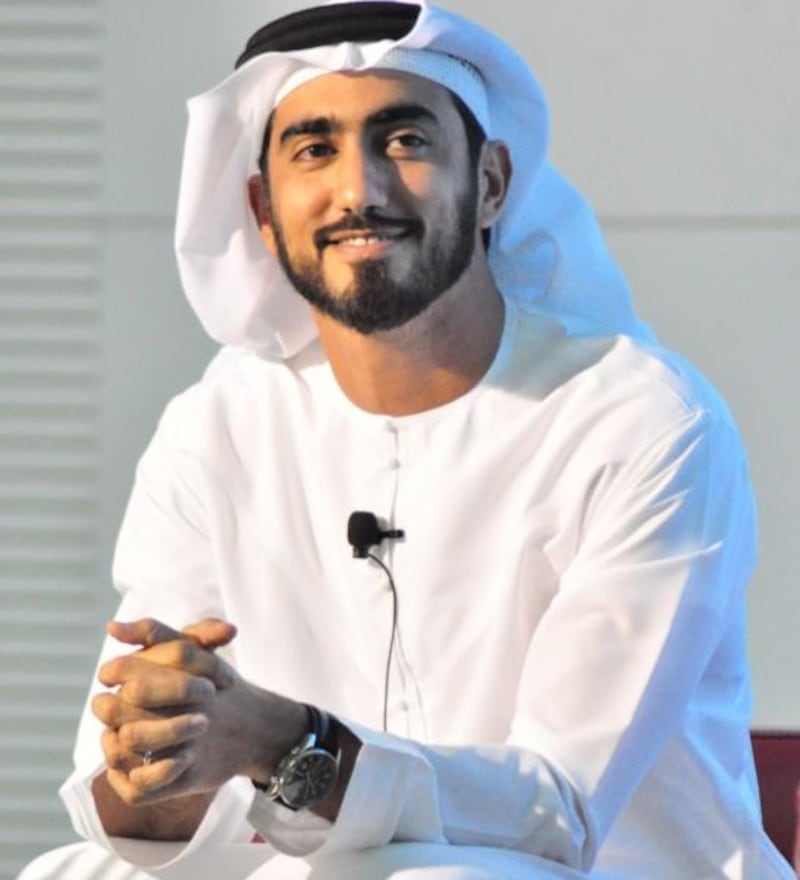Majid Al Qassimi wants nothing more than to generate a food revolution across the UAE and the wider Middle East.
Already an environmentalist, conservationist, entrepreneur and trained veterinarian, the now government adviser is on a personal mission.
He is adamant that by helping residents understand the importance of sustainable agriculture, he can improve diets and encourage healthier lifestyles.
There are additional implications, too, with a renewed focus on green technology also leading to enhanced food security in the Emirates
“In terms of healthy food consumption I believe in being close to the source of food,” said Mr Al Qassimi, 37.
“I believe the more you know where your food came from, the better.
“We can all build stronger, healthier diets by knowing where the food on the plate in front of you comes from.”
Al Qassimi’s fascination for the environment and ecology was first sparked in the third grade while studying diagrams of animal food chains.
He also became captivated by plants and the energy they produce as he learnt about the chemistry of photosynthesis.
“That was such an epiphany to me at a young age,” he said. “It was a snapshot to how the whole world works.”
Years later, Mr Al Qassimi was considering a career in physiotherapy when he spent a summer on work experience at the Central Veterinary Research Laboratory in Dubai.
While there, he worked under the pioneering veterinary surgeon and camel specialist Dr Ulrich Wernery, who suggested he pursue veterinary medicine.
“I’d never considered a medical doctorate profession and then I sort of built up the courage to do it,” he said.
After studying at the University of Oxford, he went on to qualify as a doctor of veterinary medicine at Saint Istvan University in Budapest, Hungary.
“I came back home knowing I had a lot to do and a lot to contribute to the agricultural sector,” he said.
Mr Al Qassimi began work at Al Ain Zoo as an assistant veterinarian, using social media to spread awareness of the importance of veterinarian work.

Later he became a director at the Environment Agency Abu Dhabi and established the UAE's first ecotourism attractions.
He also led an initiative to reintroduce the Arabian oryx and the Scimitar-horned oryx back into the wild.
During those early years of his career, the UAE had defined plans for growth in sectors such as commerce and logistics.
Agricultural and food production was still a burgeoning field, but Mr Qassimi was quick to recognise it would soon become a growth area.
In his next job, as acting assistant Undersecretary of the Food Diversity sector at the Ministry of Climate Change and Environment, he became responsible for the UAE’s food sector.
“We as a country significantly rely on imported goods for what we consume; I would say between 90-95 per cent,” he said.

“Being such a fragile environment, the assumption by the general public is that we can’t grow anything ourselves. But there is a strong, budding agricultural sector.
As world governments grapple with the potentially devastating impacts of climate change and the knock-on impact on crops, livestock, forestry, fisheries and aquaculture, there are grave economic and social consequences to consider.
Environmentalists have forecast trade disruption, adverse health implications and lowering incomes.
“There are many steps that can be taken now, within the UAE and across the region, to change the way things are done,” said Mr Al Qassimi.
"Creating our own sustainable agricultural systems creates more resilience for economies.
“We have a lot to capitalise on as we diversify away from oil. There is a real opportunity here with food production.”








